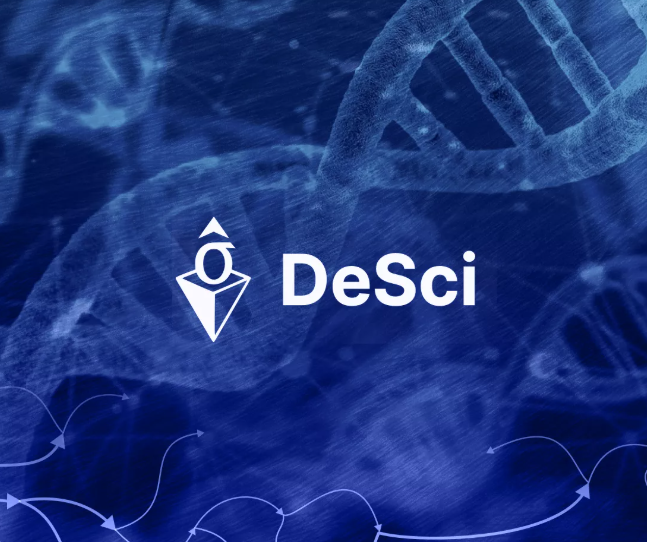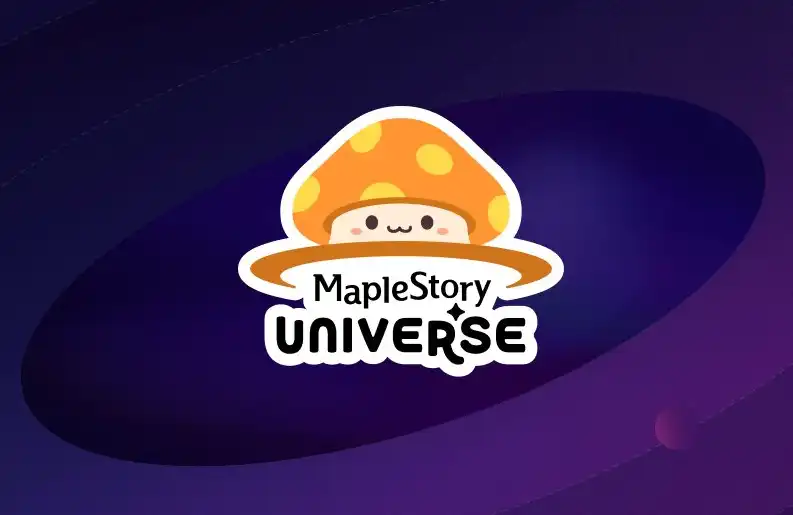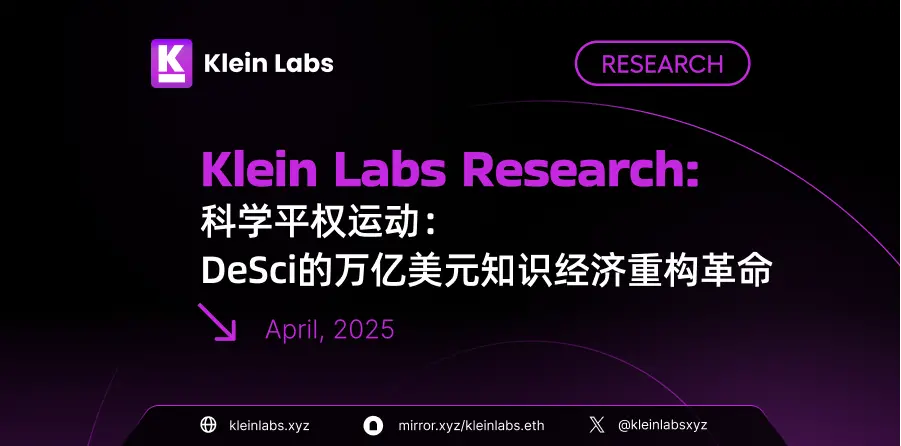Hello, crypto enthusiasts! Today, we're diving into an exciting and promising topic—Decentralized Science (DeSci). Given the rapid advancements in technology, DeSci is being hailed with high expectations. How is it likely to change the landscape of scientific research? What new opportunities can it bring us? Let’s unravel the mystery of DeSci together!

What is DeSci?
In simple terms, Decentralized Science (DeSci) refers to the emerging field that integrates blockchain technology and decentralized principles into scientific research. Traditional scientific research often relies on centralized institutions (such as universities, research institutes, and publishing companies) that play crucial roles in funding, reviewing, and publishing research. However, this approach has its shortcomings, such as data opacity, repeated studies, funding biases, and difficulties in obtaining scientific results.
The goal of DeSci is to tackle these issues by promoting openness, transparency, and reproducibility in scientific research through decentralized methods.
How Does DeSci Work?
DeSci typically operates by leveraging blockchain technology for decentralized storage and management of data. For example, researchers can store experimental data, findings, and papers on the blockchain, ensuring the integrity and immutability of the data.
Here are some key components of DeSci:
Decentralized Data Storage: Using IPFS (InterPlanetary File System) or other decentralized storage solutions, research data and outcomes can be securely and transparently stored and shared.
Smart Contracts: Applying smart contracts to research projects can automate the management of funding, publication of results, data sharing, and other processes, minimizing the need for intermediaries.
Community-Driven Governance: Within the DeSci ecosystem, community members can collectively decide on research directions, funding allocations, and other critical matters, ensuring a fairer and more transparent research process.
Token Economics: Many DeSci projects utilize token economics to incentivize researchers to share data, collaborate on research, and participate in governance. This economic model can enhance research dynamism and, consequently, scientific progress.

Advantages of DeSci
As an emerging model for scientific research, DeSci presents several notable advantages:
Increased Transparency: Since data and findings are stored on the blockchain, anyone can access the research process and results at any time. This level of transparency can significantly reduce the likelihood of academic misconduct.
Enhanced Collaboration: DeSci breaks down geographical and institutional barriers, allowing researchers worldwide to collaborate more easily. Through blockchain, researchers can efficiently share data and findings, accelerating scientific advancement.
Fairer Funding Access: Decentralized funding models enable more researchers to obtain financial support, not just those affiliated with traditional institutions. Community involvement can guide funding toward projects with greater potential and value.
Lowered Barriers to Research: DeSci makes research information more accessible, allowing ordinary people to learn about and engage in scientific inquiry, promoting the popularization of scientific culture.
Challenges Facing DeSci
Despite its potential advantages, DeSci faces several challenges in its implementation:
Technology Maturity: Blockchain and related technologies are still evolving, and ensuring their effective application in research requires ongoing study and practice.
Industry Acceptance: Whether traditional research institutions and publishing industries are willing to shift to decentralized models remains uncertain.

Data Privacy: Protecting research data privacy and intellectual property in a decentralized environment is a significant challenge that needs resolution.
Future Outlook
The rise of DeSci marks a transformative shift in scientific research models. It not only provides researchers with a new platform but could also lead to entirely new scientific discoveries and applications. As blockchain technology continues to develop and mature, DeSci is likely to become increasingly important in the scientific community.
Therefore, I encourage all of you interested in this emerging field to keep an eye on and engage with DeSci's development—whether as researchers, investors, or members of the public, we can all find our place in this wave of transformation.
Conclusion
Today, we explored the concept, operation, advantages, and challenges of Decentralized Science (DeSci). I hope this article offers you a deeper understanding of this noteworthy new field. If you have any further questions or thoughts about DeSci, please feel free to leave a comment below, and let’s discuss together!
















No comments yet